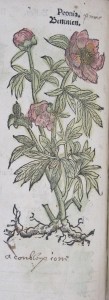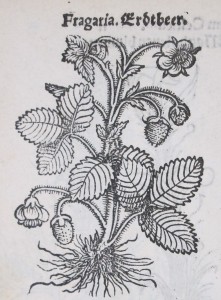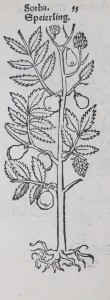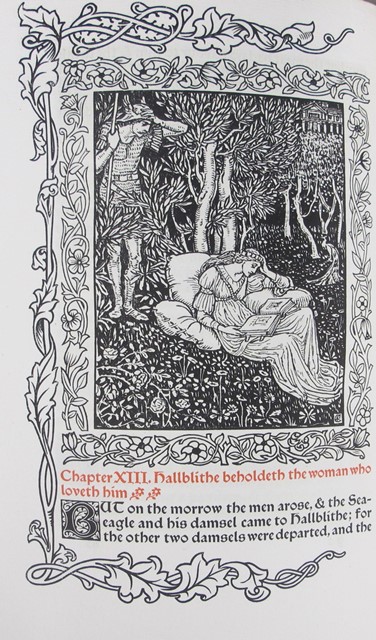
A springtime post
To celebrate spring, and the upcoming holidays, here are a few illustrations of spring flowers from our Rare Books collections.
Herbarum imagines uiuæ is an 1536 German botanical work, and the UL copy is beautifully hand-coloured, with English names added in MS. Herbarum, arborum, fruticum, frumentorum ac leguminum (Adams.7.54.4) is a 1546 botanical work, and consists of woodcuts, mostly of plants, labelled in Latin and German, together with indexes of Latin and German names.
Both books were published by Christian Egenolff (1502-1555), one of the first important printers and publishers from Frankfurt am Main, and the woodcuts were re-used in different configurations. The Herbari were very popular works at the time, and Egenolff was even embroiled in a copyright claim by the Strasbourg publisher Johann Schott (see Koerner, The Moment of Self-Portraiture in German Renaissance Art, p. 215)
With their rich intricacies, the illustrations of these early printed books are somehow reminiscent of William Morris’s designs overflowing with plants and fruits, and of his love of “the floure and the leaf”, to use the title of one of the poems (then attributed to Geoffrey Chaucer) published by the Kemscott Press, and reproduced here as a banner for the blog-post. To celebrate Morris’ birthday, as he was born on this day in 1834, we will finish this springtime post with an illustration from one of the Kelmscott press books, not only published, but written by William Morris: The Story of the Glittering Plain or the land of the living men, or the acre of the undying, and admire its beautiful flowers and trees.




